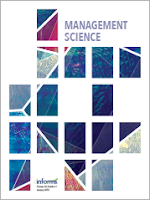Kelley Loper & Carole J. Petersen
in The National Security Law of Hong Kong: Restoration and Transformation,
Edited by Hualing Fu & Michael Hor (Hong Kong University Press, July 2022),
Chapter 12, pp. 255-278
Introduction: This chapter analyses the impact of the Law of the People's Republic of China on Safeguarding National Security in Hong Kong (NSL) on educational autonomy and academic freedom, two core values that the "One Country Two, Systems" (OCTS) model of autonomy is supposed to protect. Due to space constraints, this chapter primarily focuses on academic freedom in tertiary education. However, it will also address certain contentious issues which have arisen in primary and secondary schools.
Chapter 12, pp. 255-278
Introduction: This chapter analyses the impact of the Law of the People's Republic of China on Safeguarding National Security in Hong Kong (NSL) on educational autonomy and academic freedom, two core values that the "One Country Two, Systems" (OCTS) model of autonomy is supposed to protect. Due to space constraints, this chapter primarily focuses on academic freedom in tertiary education. However, it will also address certain contentious issues which have arisen in primary and secondary schools.
Following this introduction, Part I reviews the concept of academic freedom, its value to society, and the ways in which it can be undermined. Part II then analyses the situation in the Hong Kong Special Administrative Region (SAR) prior to the enactment of the NSL. Although academic freedom and educational autonomy are expressly protected in the Hong Kong Basic Law (BL), changes to university governance in the past two decades have made universities and individual academics more vulnerable to political pressures.
Part III of the chapter analyses provisions in the NSL that could further inhibit academic freedom and educational autonomy. The NSL obligates the local government to "promote national security education in schools and universities" and creates several new criminal offences, which also apply extraterritorially. The NSL also created new security agencies and endowed them with extensive powers. On the other hand, Article 4 provides that human rights shall continue to be protected, including the rights stated in the BL, the International Covenant on Civil and Political Rights (ICCPR) and the International Covenant on Economic, Social and Cultural Rights (ICESCR). These two treaties have a special place in Hong Kong's legal framework due to Article 39 of the BL and the Bill of Rights Ordinance (Cap 383) (which duplicates most of the provisions of the ICCPR). Thus, any policies adopted by Hong Kong's educational institutions should comply with both treaties. When cases are litigated the local courts should use the ICCPR as a guide to interpret vague language in the NSL. Thus, the views of the United Nations (UN) Human Rights Committee, the expert body tasked with monitoring states parties' implementation of the ICCPR, are particularly relevant. The UN Committee on Economic, Social and Cultural Rights, the monitoring body for the ICESCR, can also offer guidance, particularly in the context of the right to education. These international standards and their direct incorporation into Hong Kong law allow room for the courts and others to support academic freedom. At the same time, legal protection alone is unlikely to be sufficient. Other non-legal strategies, such as the drafting and enforcement of robust academic freedom policies by tertiary institutions themselves, are needed to strengthen academic freedom in Hong Kong going forward. Indeed, we conclude that the academic community has an obligation to adopt such policies and that the Hong Kong government has a constitutional obligation to respect them. Suggested language for a university policy on academic freedom is therefore included at the end of this chapter.




















